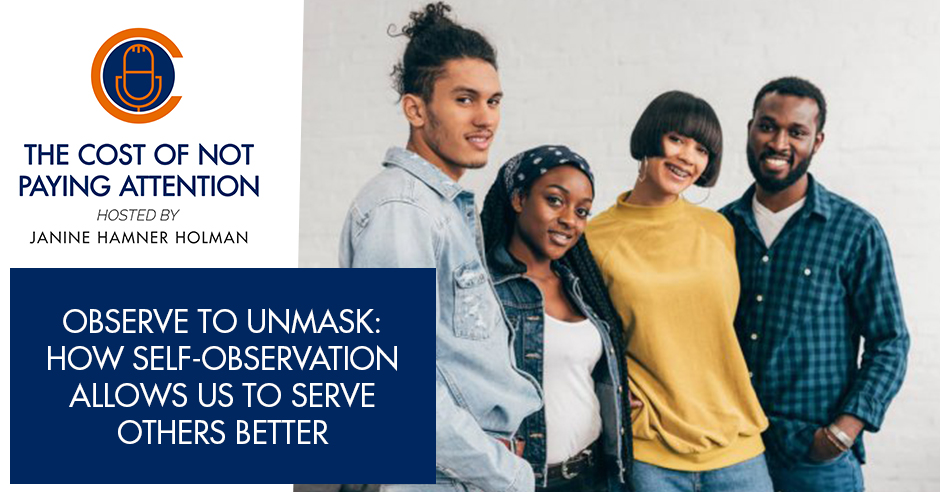
Janine Hamner Holman and Pushpendra Mehta talk about the power of self-observation in allowing us to better observe and serve others. Pushpendra is a writer, storyteller, a marketer, and a mentor who is focused on helping people unmask themselves so they can have a much deeper connection with other people. In this episode, we discuss caring, sharing respect, empathizing, listening, and giving to yourself. Learn how to unmask yourself and know who you really are!
GUEST: Pushpenndra Metha | LinkedIn, Facebook | Buy his book: https://www.amazon.com/OBSERVE-UNMASK-Things-People-Better/dp/B08DSSZC9P/ref=tmm_pap_swatch_0?_encoding=UTF8&qid=1594932376&sr=8-1 (Amazon link to the book, OBSERVE to UNMASK)
HOST: Janine Hamner Holman | [email protected] | LinkedIn, Facebook, and Twitter | Subscribe to my Newsletter! Book me to Speak!
—
Listen to the podcast here:
OBSERVE to UNMASK: How Self-Observation Allows Us To Serve Others Better
A Conversation With Pushpendra Mehta
What am I paying attention to? The power and the opportunities for quiet. I was having a little chat with our guest and mentioned that I had come back from four days in the desert. In case you haven’t noticed, 2021 has been quite a year with all that we’ve all been going through! I realized that it used to be that I had a lot of energy in my tanks. I could be with my clients, recording a podcast, writing a blog, working on my book or doing all of those things. At the end of the day, I had plenty of energy leftover to spend time with my husband and listen to him from a place of curiosity, inquisitiveness and grace.
I have noticed, because of everything that 2020 and 2021 have entailed, that I have less space and energy available. Everything that I need to pull out of myself gets pulled out for my clients, my podcast, working on my book and doing all the other things that I need and get to be doing to move my business forward. Maybe you can see where this is going! What my beloved husband gets is what’s leftover…which is not very much. And then what I get is pretty much nothing. I realized I had been depleted with my husband and myself.
So I gave myself a time-out. I went to the desert for four days all by myself. I’m one of these people who get my energy from being by myself. That’s a definition of an introvert that I wasn’t aware of as a younger person growing up. I thought that an introvert was someone who was quiet and an extrovert was someone who was very gregarious, naturally outgoing, and engaged.
I am gregarious, engaged and enjoy getting to know other people…but where I get my energy from is being by myself. I took myself off to the desert for four days of quiet, relaxation, reading silly books and listening to interesting but not particularly insightful podcasts. I gave myself a break and got present to the power of quiet.
In my first conversation with Pushpendra, I got really present to who he is, which is a writer, storyteller, marketer and mentor who is focused on providing solutions to problems spurred by the power of spirituality, observation, perception and intuition. One of the things that he talks about is listening more and querying more , which is a word that I love. It’s not in the normal American lexicon. Querying more, being curious, about other people.
He is the author of the book OBSERVE to UNMASK: 100 Small Things to Know People Better. He also runs an online course OBSERVE to UNMASK to help people uncover or unmask themselves and others to know who they are and encourage self-observation, self-improvement and a much deeper connection with other people. He is also a Contributing Writer with Entrepreneur Media, which is the home of Entrepreneur Magazine. He is a proud alumnus of Northwestern University in Illinois. He is joining us from Atlanta. Welcome, Pushpendra.
Thank you so much for the generous introduction. That’s so nice of you. It’s an honor and delight to be on your show. What you mentioned in terms of the time you took off to spend with yourself is coincidental. One of the reasons I wrote OBSERVE to UNMASK is because of what you rightly said, the ability to know yourself before you know others, which is self-observation. You have to know yourself first before you know others. It’s a 365-day 24/7 work-in-progress exercise.
This pandemic wanted you to somewhere get away from your usual life. There was an epiphany. I love to observe myself because that’s when I get to know my frailties, ego trips, inward and outward journey. I’m a work in progress. There’s one of the things that came to my understanding during the pandemic. I’ve read about it. I practiced it earlier but this was one thing that came to the fore. As a writer, storyteller, marketer and mentor, you get engagement with narratives, stories, promoting products and services and clients.
If you cannot thank people profusely, don’t expect people to show their gratitude to you and compliment you wholeheartedly. Share on XIn that entire journey or rush, you sometimes forget to look at your own self, even though you’re very focused on yourself. Prior to the pandemic, I enjoyed my own company and I always have. I enjoy being with myself but somewhere I realized that I always needed some external activity and stimulation of some person. That could be somebody who is meaningful, purposeful, interesting, intelligent and smart but somewhere I needed to see within myself.
What happened was the self-awareness in terms of the ability to enjoy my own company and being with myself came back where I could be alone and yet not feel lonely. I could be with people in a bio-bubble with a few families and yet I could be alone and not feel lonely. That was something that I began to bring back to my own life because I said, “This could be something that could last for a few years.” Who knows? We are working remotely and not seeing that many people.
If you cannot allow boredom and frustration to set in, people are going through so much in life. There is debt, desolation, loneliness, neglect, income and unemployment. Compared to that, if somebody says or if I said, “I’m getting bored,” that’s not fair. Fair is an understatement. I told myself, “I need to start enjoying my own company.” That’s something that has happened and I thank this book. I don’t thank myself. I thank all the people who made this book happen, who I call my readers and made me understand that I need to walk my walk and walk the talk.
My definition of being bored has changed. If you are a boring person, you will get bored. If you are an interesting person, you must have the ability to enjoy not of narcissism and self-love but be able to enjoy your company. You can do that by reading. As you rightly said, you and I love reading. You can listen to a meaningful podcast, watch an interesting, amusing video and pour into the wisdom of ages and sages of people.
That is everything that you have on your most powerful instrument, your cell phone and the internet. It’s affordable. There are ways you can do that. You can pick up the phone, talk to somebody and get into an interesting conversation. You can meditate or go for a long walk. There is so much more that a country like the United States provides, unlike a lot of other parts of the world, that’s available for free. In that sense, that has been my greatest epiphany.
I’m 100% sure that our readers understand why I enjoy talking with you so much. You are so insightful and graceful. Your accent is charming. I love the way that you say epiphany. In the book, you referenced that you have always been a gentle person and soul. That comes across. It’s not that there’s anything unsubstantial about you. You are a very substantial, interesting and curious person who also has gentleness and grace about you.
It occurs to me as an invitation to be with you in a way that we don’t always get to be with each other. One of the things that was wonderful and remarkable to me about our first conversation is, having never met each other before, we talked about spirituality and things about our childhood. It was an instantly deep and connecting conversation. I finished that conversation thinking, “I really enjoyed this person. He is such a delight!”
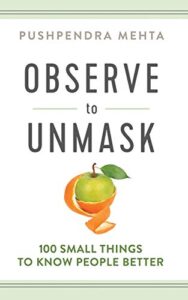
OBSERVE to UNMASK: 100 Small Things to Know People Better.
It was because of that ability that you have with this thing that you create where it is an invitation to come deeper. I’m wondering if that has a connection to OBSERVE to UNMASK. As you have gone on this journey of unmasking yourself and helping others to unmask themselves, I see it as an invitation in you if that has been augmented through that journey.
Thank you so much. I’m on top of the world. That is so gracious and generous of you. I’m a writer but I fall short of words. Thank you is a small word and it’s the only one I can think of. It’s a very interesting question that you asked. I’ve mentioned this in OBSERVE to UNMASK. I have my frailties and weaknesses if I am gentle and kind. We inherit certain qualities from our parents, just as we inherit well. Some of us do. Some of us don’t. We inherit agreeable and disagreeable qualities.
My father was a senior banker. He is still a gentle and kind person. He used to always tell me, “If you have to throw your weight, don’t do it with people of your equal. Don’t do it with people who work for you or who you think in the hierarchy are lower in economic rank or status. If you have to throw your weight, throw your weight in trying to improve yourself. You can be kind and gentle but be firm.”
That’s different that he is kind and gentle. He still hasn’t figured out the definition of being fun. That’s one thing I learned. You don’t have to be judgmental but if you observe your parents, they have agreeable and disagreeable qualities. They have positives and negatives. If you want to inherit the positive attributes, you must be able to value and respect them. You must be able to say, “This is good but what is missing?”
I’m kind and gentle but I realized that over a period because I’m forgiving from my father of what I’ve learned from him, people tend to come and take advantage of the situation. I’ve allowed myself also to be taken advantage of. That’s fine if it helped somebody prosper and flourish. No problem. Take advantage. Having said that, it should not affect the people in my personal life because it’s not fair to them, whether it’s my wife or one of my loved ones.
I have realized that it’s important to care, share, love, respect, empathize and listen. It’s very important to do all of that. When you love, you should not spoil. When you share, you should not give all you have. When you empathize, you should not be overprotective. When you listen, you should not be subservient. When you care, people should know that you care but you also have to care for yourself.
You mentioned querying. When you understand human behavior, you understand people. It’s important to speak less, query more and listen intently. Part of being gentle and kind is to tell yourself that the other person you’re getting into a conversation with striking, developing a relationship or forming an association with, the other person is equally important. Whether it’s a digital conversation, phone conversation or one-on-one conversation, you have to respect the other person and make the conversation about the other person.
The moment you make the conversation about the other person, converse about topics that are of interest to him or her. That’s when you will automatically become more of a gentle and kind person. You can care, share, respect, empathize and listen. You can allow each other to develop and talk to each other to know better. It’s the same old thought that, “You would like to give respect to the other person and treat the other person as you would want to be respected and treated.” If a kind in a foreign word can make things happen, you don’t need to lose your temper or treat people unfavorably.
People tend to come and take advantage of your situation and that's fine if it has somebody prosper and flourish. Share on XIn that sense, observing to unlock self-observation and people come to me for any advice, I always tell them that, “The first thing is you must make sure that your communication is not abrasive, harsh or rude.” In most of our relationships, that’s where we lose the script. Part of being kind and gentle, it’s very powerful. It’s easy to be brash, abrasive and dismissive, patronizing and condescending in a power equation.
Anybody who is far more successful than you, has more money or is more powerful in terms of a title, job or business, it’s very easy but to be kind, gentle and giving is tougher. In the long run, I do believe that helps. I try and do my best. I have my feelings. You need to ask my wife, “Will I fail this or I pass the test?” In the outside world, I can be the best but if my wife says no, then no.
That’s what I had realized that I was getting to the point where if you had asked my husband, “Is she as thoughtful, interesting and kind?” It felt to me as he would have said no. That’s not what I want for the man that I’ve chosen to walk this Earth together with. So I took myself on a time-out. This idea of self-care, of taking care of yourself, it’s one that I’ve only heard about in the last couple of years.
For women, in particular, we can get hung up on that because many of us have been taught as children that girls are supposed to be nice. Nice gets collapsed in with things like selflessness and generosity. We can then end up losing ourselves in service to other people and forget to stand up for ourselves. Many of us have, along the way, realized that we had lost a muscle. We’ve lost that knowledge of what the difference is between nice, which I think of as, “Don’t rock the boat. Don’t make any problems.” Versus what it means to be kind. When we are kind, we can say things that need to be said.
We can say things that are important that are sometimes hard to hear but that are speaking truth to power, that are things that need to be said and still be kind. We can’t do it and still be “nice” and not rock the boat. We’re going to rock the boat, but we can remember to be kind and give up being nice. One of my personal quests that I’m on for myself is to give up being nice and embrace being kind.
You’re right in what you’re saying. Kind is in words, actions, parts and beliefs. It’s in the way you conduct yourself and also the way you look at somebody. The way I look at somebody, my eyes can also have a kind look, just as you look at a pet. You can look at somebody as this pet or you’ll see a child or somebody else’s child. You’ll see somebody in pain or grief. You’ll also see somebody who has caused you in some form or the other a lot of agonies. When the person suffers, the first stroke or first part does not remain but you were like, “Yes, good.” It’s the a-ha moment or karma.
That’s where the word kind also sets in. Each of the important religions in the world has said something nice about it. Forgiveness and compassion are parts of being kind. Somewhere on a day-to-day level, the word kind has to do with a lot of the choice of words that we use. Do we use words that are energizing, uplifting, positive and affirmative expressions like yes? You can be kind but you want to make sure that people don’t walk over you so you can be firm.

Self Observation: Part of being gentle and kind is to tell yourself that the other person you’re getting into a conversation with striking or developing a relationship or forming an association with the other person is equally important.
That’s why it goes back to one thing. You have to self-respect and value yourself. Not to the point of being conceited, pompous or narcissistic but if you cannot respect yourself, what are you going to teach your children? If I can’t respect myself and I had a daughter, will I tell my daughter, “When you get married, allow yourself to be abused or discriminated?” I hope not. I have to make sure that while we’re being nice and kind, we must give ourselves respect. If we can’t respect ourselves, honestly, we cannot respect the relationships we have developed professionally or personally.
We were talking about our need to understand ourselves for self-care. It’s that idea back in the day when we could fly with more ease: “Put on our mask first before we put someone else’s mask.” When we have that self-compassion, self-care, self-understanding and self-reflection, it also then enables us when we come from a place where we can see the child or puppy in other people. When we can see that, that is divine in us and others. When we come from that place, things go much better.
I don’t know about you but my capacity to see from that place of “the divine that is in me connecting to the divine that is in you” is very much connected to how much attention I’ve been paying making sure that I’m okay, getting my tanks filled, and ensuring that I have enough capacity in me for generosity, kindness and empathy. When I take care of myself, then it’s a lot easier for me to see which is divine in you, even if you and I are having a hard time.
I was struck in your book of the different masks that we all wear. This is a metaphor. We don’t literally walk around with masks on but there are people who get to see different pieces and parts of us. One of the things that I’ve been curious about in my work is the pressure that younger people who are coming into the workforce. The Millennials and Gen Zs are coming into their own. They are demanding that work is meaningful.
Which means that, whether I’m the CEO or I’m sweeping the floors, that I have a real understanding of the contribution that I make, how my work makes a difference, and what we are all doing as an organization is helping to make the world a better place. I’m wondering if they have gotten better at removing some of their masks if they have found some of the special sauce to engage with the world in a maybe slightly more unmasked way. What are your thoughts on that?
I have been a career mentor. I have mentored Millennials and Gen Z for many years. I’ve written a book called Tomorrow’s Young Achievers: 31 career defining insights for a radically different tomorrow. Having said that, one of the things I’ve noticed and I believe Millennials and Gen Z, the younger ones, particularly, is they’re going to get it right. There are exceptions. I hope I’m true. I’m pretty sure that I’m going to be right on this. They’re not going to repeat the same mistakes that their parents, grandparents or the generations made earlier.
It’s a different world but because they’re exposed to so much, social media has both positives and negatives, they’re color-blinded in many cases. They’re more empathetic and compassionate. There are pros and cons of being exposed to so much early on in life. If you were to focus on the positives, many of them want to pursue what they love. They want to make it their careers, pursue everything in passion and question everything. They’re not going to just accept anything and everything you tell them.
If they want to be a vegan and people in the family, everybody is a carnivore and they believe they want to be a vegan, flexitarian, pescatarian or vegetarian, they are going to do it with a certain amount of understanding, whether it’s backed by research or conversations with their friends, people in the family or outside. This would result in observation, conversation, analysis, curiosity, listening and making their own mistakes also, which everybody should be allowed to, which is fine because all of us make our mistakes.
You have to know yourself first before you know others. Share on XThey are in my mind going to be far more rewarded and are going to get there faster. I hope that some of the things that they have inherited, these were all that they have inherited, particularly the negatives. Realistically, I don’t know if they can get rid of a lot of the demons but they can certainly make a difference in terms of environment, cultural aspects, discrimination, diversity, inclusion and abuse. Making the world a smaller and better place is something I do hope for.
Also, to be fair, they would have the ability to take more risks. For earlier generations, in many cases, particularly for immigrants, it wasn’t easy. In many cases, they left everything to come to another world. They came and built a successful life. Many of them could not pursue what they wanted to do, what they loved and what they cherished.
The younger generation, particularly if they are middle class, upper-middle-class or belonged to the rich and affluent, will have that many more options. Unlike years ago, it took 30 years to become a billionaire. Now, you can become a millionaire if you start a career in your twenties and get it right. You can take risks. You don’t have the pressures of, “I need to conform to American life. I need to get married by this particular age and have a home by this age. I want to have a suburban living.”
Many of them are going to abandon that. They’re going to be choosing their own forms of accommodation. Some of them may say, “I don’t want to buy a home. I’m just going to rent all my life. I don’t need a vehicle, car and driving license.” Many of them are embracing religious and spiritual parts of other cultures.
They’re making those travels, excursions and trips, which earlier generations could not do for economic reasons and sometimes because of sacrifice that they had to make for their families and sometimes out of their own choices or were not open to it. I do believe and concur with you that this generation, particularly Gen Z and Millennials, we have a lot of hope. I’m hoping that they approve of people like me right in the time to come.
I believe that they will. 2020 and 2021 have been full of so many things that have been so hard. There are always silver linings in the times that are hard. We never grow when things are easy. When we grow as individuals and as a collective is when things are hard. One of the hopes that I had, which has not yet materialized, was that the pandemic would help bring people together, not in a physical way but in a metaphysical way and help to have the feeling that we are all in this together.
Unfortunately, I don’t think that’s always transpiring, and that’s part of the hope that I have for the younger generations. They have been less hampered by some of the things that we older generations bought into and we’re enculturated in. They have a much different heart and mind for people who are different from them. If they happen to be of one income level, they don’t see someone who is of another income level, race, gender or gender identification as worse. They just see them as different.
There’s so much potential and opportunity. The conversations that have been happening since the murder of George Floyd back in May 2020 have been so hard, eye-opening and heart-opening for so many people. It continues to feel to me like we are on the cusp of a new day, where we look at somebody and understand that the “outwardness” of us is the shell that houses the “inwardness” of us. If I’m skinny, fat, Brown, Beige, Red, Yellow, White or Black, it’s the exterior that houses what is inside of me. That is what there is to be interested about. With the outward trappings, who cares that much? What I’m curious about is what is inside of you.

Self Observation: When you love, you should not spoil the person you love. When you share, you should not give all you have. When you empathize, you should not be overprotective. When you listen, you should not be subservient.
The jewels are all inside of us. It’s just a question of tapping the jewels that are inherent. Each of us is gifted. This generation, the younger at heart, particularly in their 20s and early 30s, started on the right path. They will get to the jewels because I didn’t or my generation didn’t.
If you had a magic wand and you could have people pay attention to one thing, either something that we have been talking about or something else, what would you love for that to be and why?
The first thing I’ve noticed is that for any good relationship to evolve or when we talk about self-observation or observation, most of us believe, at least I did, that people change. We were talking about the pandemic. It made us realize that most people don’t change. They become more of what they always were. We think that people have immigrated. They’ve got educated. There is a certain sense of elegance or fine men’s sophistication and travel so people change. At the core, unless a person wants to change out of his own volition, people don’t.
The two most important things I do see when it comes to relationships and otherwise are something which is not highlighted very often is the part of what you call emotional and non-financial stinginess, which again goes back to everything we’ve discussed so far. People are appreciation stingy, compliment stingy, affection stingy, gratitude stingy and apologizing stingy.
If you cannot thank people profusely, you expect people to show their gratitude to you and compliment you wholeheartedly but you cannot do that. It takes us saying a sorry also. If we can’t do it from our heart but we need to thank somebody for somebody the justice that they’ve shown. That’s one thing I feel particularly during the pandemic and otherwise, gratitude, compliments, appreciation, apology and thank you. Please do it wholeheartedly. Make people feel bigger, happier and more important than you. We’re not going to get small with that. That’s one thing.
Anytime I’m observing people and I feel that if I’m trying to get close to somebody, that’s an attribute I do hope more and more people have. That’s something which makes you more endearing as a person and allows you to have these intimate relationships. Not just relationships but intimate and close relationships. That’s one part.
The other part that often goes unnoticed generally is the fact that if you want to know someone very well, you don’t need to be a psychologist but that will help you because it helps you identify a suitable partner. It helps you understand professionally who are the colleagues or coworkers? In business, who are the partners you want to align with or develop a good professional or positive relationship with? The identification and building of relationships will work for you and make you happier.
One thing that helps is before you allow anybody to get close to you, please try and understand what his or her life journey was. Particularly, pay attention to the first 18 to 21 years of their life. You have to be curious to find more about the person. It’s surprising what we lack is what we pursue and what we lack is what we are now. You would see some people always hanker for love, attention, importance, validation, happiness or peace. That’s because an emotional lead went unfulfilled.
For any good relationship to evolve, we have to know ourselves and communicate better. Share on XThe entire journey from being a child to an adult, they did not get the love, importance, social validation and attention. That’s why they hanker for it. There are some people who go after money or fame all their lives. That’s the only thing they want. They think and dream about money. They chase money. They only want the fame, power and recognition that comes with it. That’s because in the first 18 or 21 years, they did not see any money.
If you are trying to figure the compatibility between relationships, want to find a suitable partner for yourself, don’t want to land up in a marriage that you’re going to regret or a professional association or have a business partner you want to be starting a startup with, it’s important to know what their life was because that’s what frames them.
These are two important things that I will recommend to people. Figure out the first 21 years of a person’s journey. Most people, thereafter, very few want to change. Most of them want to be what they were and become more of what they were. Second is, please notice how emotionally stingy or emotionally lavish a person is.
I was talking with an organization about a lot of business owners, CEOs and even people in human resources think that what’s going to keep staff around and have our people be loyal to us is more money. It’s not true! Enough money is different in different parts of the world. And, once you have “enough” money, then what matters is all of those things that you were talking about. It’s about appreciation and gratitude. One of the things that I enjoy so much about you is the way you appreciate and the gratitude that you show. It’s so lovely. It’s unfortunately not very common. Which, of course, then makes it even more lovely.
I was talking with this company’s CEO. He is paying his people just fine. They’re getting plenty of money. His opportunity is to lean into gratitude and not just say “good job” but to instead say “great job on this specific thing that you did. Here’s why it made a difference.” Appreciate the time, energy and effort. Even if they gave great effort and it was still a complete flop, appreciate the effort and energy that went into it. It’s such an important message. Thank you so much for that.
I believe in karma and we were discussing that. If I can dig in one minute into one aspect of karma that often gets ignored, which is that we believe that karma is where science and spirituality meet or the ancient and modern meet. It’s about cause and effect, action and reaction, and sowing and reaping. Yes, it is but what constitutes good karma and bad karma?
There is a karma currency just as there’s a digital currency and cryptocurrency and the dollar, yen, pound and euro. Karma currency constitutes our words, habits, actions, beliefs and thoughts. They constitute the good or bad karma. Appreciation, apology, gratitude, sharing and caring, all of these constitute your good karmas.
If for some reason, you made all this effort to take out that one hour to speak with me, I can turn it around and say, “I’m doing you a favor.” No, you’re doing a favor to me. I can keep that in mind similarly as an organization. Whenever I pay a compliment to somebody, I observe two things. Has the person accepted it with class or conceit?

Self Observation: You must make sure that your communication is not abrasive, harsh, or rude. In most of our relationships, that’s where we lose the script.
As an organization, you made a very important point that if a person can make it more, it can make it beyond money. If you come and tell me, “Pushpendra, you did a terrific job,” I can return the compliment or pass the credit to either the almighty or to somebody who is a direct report of mine, a peer, colleague or coworker.
If I shared the credit with profusion or returned the compliment, then either I am a person who is large-hearted or a person who is shrugging the compliment off my shoulders and giving it to somebody who is either in similar economic rank or status. Better to do it with people who work for you who could be reporting to you.
When you do that, you go from being somebody who has been humble and down-to-earth to being classy and large-hearted. That’s where your karma ties in. Otherwise, if you’re only going to be resorting to toxic and negative words, you’re going to be discouraging, belittling, skeptical, reeking of self-doubt and resentment.
If you’re going to make sure that it’s only going to be anger, greed and gossiping, then at some point in time, that is going to bounce back both personally and professionally in your life. You’ve seen more of life than perhaps I have and professionally how things bounce. Whatever goes around comes around. It’s a matter of time. It can happen 10 or 20 years later. Then you wonder, “What happened? Why did you do it?” Each of these things is a part of your karma currency.
Here’s to finding the jewels inside of us and in others, taking care of ourselves and putting on our masks first so that then we can find what is divine in others. Here’s to leaning into gratitude, appreciation, acknowledgment and increasing our positive karma. Pushpendra Mehta, from the deep bottom of my soul, I want to thank you for your time, wisdom, insights, gentleness and strength. I’m so proud and pleased to know you. Thank you so much for spending some time here with us on the show.
I’m falling short of words. Thank you very much. That is so sincere, genuine and heartfelt. In fact, I need to reciprocate this because I truly feel this has been one of the best and most riveting conversations I’ve had in a very long time. It’s all because somebody is great at that. The ability to ask the right questions is what makes a conversation interesting.
You not only have asked good questions. You have been a good listener. You have observed the nuances of a conversation and brought it out so beautifully in such an expressive manner that I cannot thank you enough. This has been an absolute pleasure and delight. This is something that I’m going to be absorbing and I’ll be ruminating about it. This is going to go on in my mind for days on end. Thank you so much. It has been an absolute honor.
You’re so welcome. I hope that our readers have enjoyed it as much as we both have. Remember, great leaders make great teams. Until next time.
Important Links:
- OBSERVE to UNMASK: 100 Small Things to Know People Better
- OBSERVE to UNMASK
- Entrepreneur Media
- Tomorrow’s Young Achievers: 31 career defining insights for a radically different tomorrow
About Pushpendra Metha
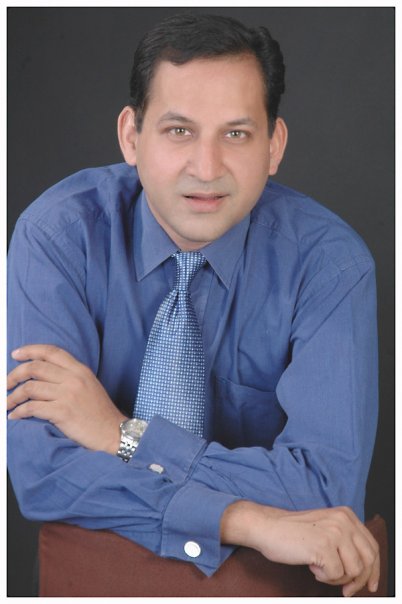 Pushpendra Mehta is the author of the novel, “The Suitable Inheritor” and the nonfiction book, OBSERVE to UNMASK: 100 Small Things to Know People Better.”
Pushpendra Mehta is the author of the novel, “The Suitable Inheritor” and the nonfiction book, OBSERVE to UNMASK: 100 Small Things to Know People Better.”
Pushpendra became a proficient observer because he was raised through the lens of spirituality that helps understand human psychology and notice the minutest aspects of life, human behavior and emotions.
He was also influenced by Sir Arthur Conan Doyle’s famed fictional detective character, Sherlock Holmes, whose powers of observation and deduction led him to avow that there’s nothing more important as trifles or the little things to understand the complicated human psyche and discover the real person. So observing the small yet important things became his credo to see into his own depths, uncover people in his mind, and feel what they feel.
And for over two decades, Pushpendra has honed the power of observation, analysis, intuition, querying, feeling deeply, and active listening to build a successful career as a writer, storyteller, marketer, and mentor that offers solutions to problems.
Pushpendra was raised in India and now lives in Atlanta, GA. He is an alumnus of Northwestern University and Sydenham College of Commerce & Economics.
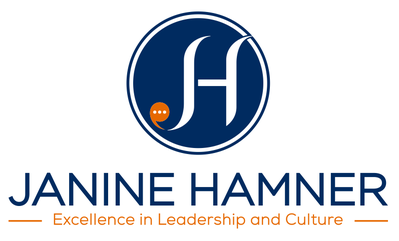

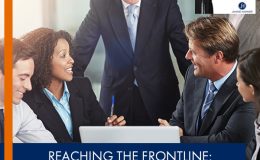


AntonioVer
December 19, 2021 6:45 amHas casually come on a forum and has seen this theme.
Big to you thanks for the necessary information.
Bravo, what phrase…, a brilliant idea
Excuse, the question is removed
What quite good topic
http://bismillahsteel.online/ppc/